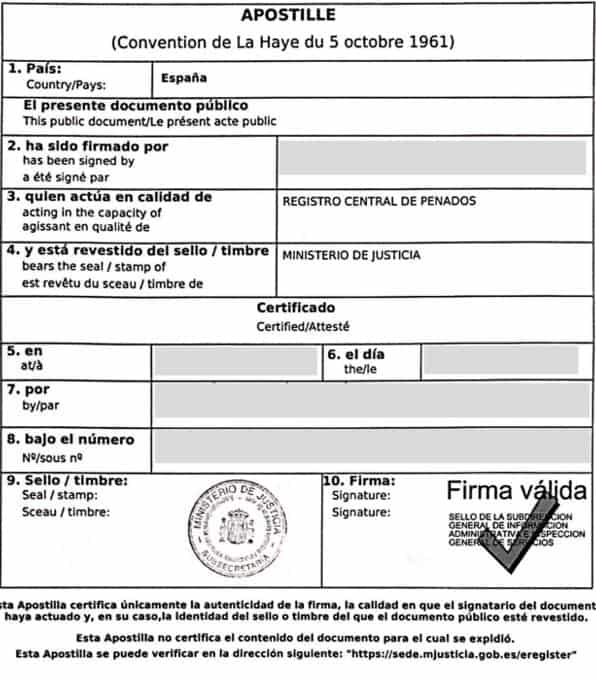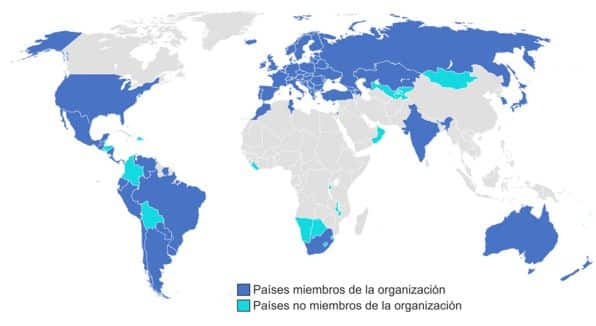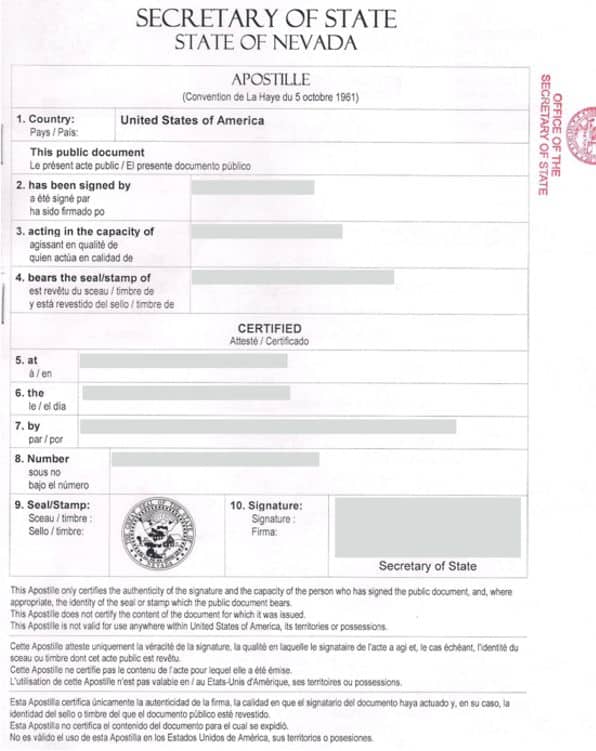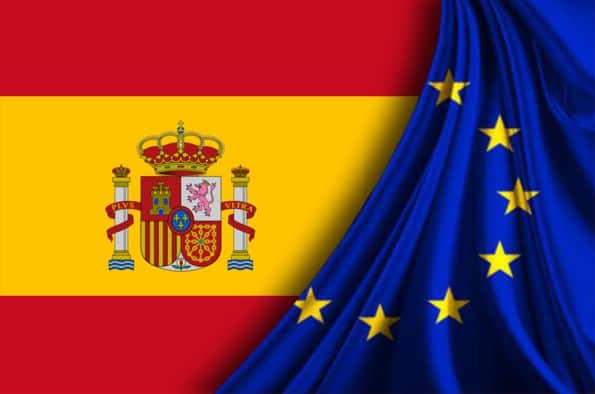What is the Apostille of the Hague?
Have you been asked for the Hague Apostille and do not know what it is?
We are going to try to explain it to you clearly without your having to get a law degree to understand...
The Hague Apostille is an official certification proving a document's authenticity. With the Apostille, the government certifies the origin and status of the official who has issued the document. Remember: it does not certify the validity of the document. It certifies the validity of the person who has issued and signed the document.
For example: With the Apostille included on a Romanian Birth Certificate, the government of Romania certifies the signature of the official who has issued said document.

This way, the documents that have been certified with the Hague Apostille and issued by a country belonging to the Convention, will be legally valid in any other Convention country without the need for additional authentication.
The official sworn translator and the Hague Apostille
When a document is translated into an official sworn translation, the Apostille must also be translated. Since the Apostille of the Hague must be attached to the original document, you must translate these exact attached documents.
We are official sworn translators. We have created this informative section to explain the Hague Apostille in greater detail, given the fact that numerous doubts and questions have arisen regarding its use.
What is the Hague Apostille?
An Apostille certifying the authenticity of the signature on the public document is added as an extension to said document.
The Apostille is always affixed as an extra sheet of paper at the end of the original document. (see photos)

All of the official sworn translations are signed, sealed, and certified by an official sworn translator appointed by the Spanish Ministry of Foreign Affairs and Cooperation.

We can provide you with the best official sworn translators of French, English, German, Italian, Portuguese, Dutch, Danish, Swedish, Norwegian, Finnish, Chinese, Arabic, and all languages.
Which countries issue them and which countries require them?
All countries who signed the 12th Hague Convention from 5 October 1961 and all associated members. (See map)

Map of the countries that signed the Hague Convention (Source: Wikipedia)
Updated list of the countries that signed the Hague Convention (Source: Ministry of Justice)
Who issues the Hague Apostille?
The apostille can only be placed by the country that issues the original certificate. . Logically, a country cannot certify a document that comes from another country. An individual cannot issue the Apostille of the Hague. it must be the country of origin.
Who actually places the Apostille depends on the country of origin, but it also depends on the type of document that is to be certified.
Generally (This may vary depending on the country):
- Official documents: The Ministry that issues the document that is signed by a government official pertaining to said Ministry.
- Notarized Documents: Notary Colleges or notaries who work as a Notary Public.
- If you are in a foreign country, a country different from the issuing country, you can usually get the Apostille of the Hague in the Consulate or the Embassy of the issuing country.
See the table below that explains the procedure for the Apostille of the Hague in Spain.
The country must be one of the countries that signed the 12th Hague Convention from 5 October 1961.
Does the Hague Apostille ever expire?
The Apostille has the same duration as the document that it certifies. For example, if a police record expires at the end of three months since the date of issue, the same goes for the accompanying Apostille.
How long does it take to place the Apostille on the document?
This is a question that is impossible to answer. It depends on the country, the Ministry, the Embassy, the Consulate, etc. If the College of Notaries is placing the apostille on a notarized Spanish document, it can usually be done in two days. But things don't always go exactly as planned...
There are agencies that take care of the entire process. We collaborate with various agencies, and they are a good option if you want to avoid spending days trying to get the Apostille. If you would like more information regarding these agencies, contact us.

Is the Hague Apostille really necessary?
When it is legally required in order to present an official document (although experience tells us that it often depends on the government official who is accepting said document).
In Spain (and generally in the rest of the countries of the European Union) it is necessary in:
| Document type | Previous acknowledgement of the signature by | Management |
|---|---|---|
| Official University Diplomas and Certificates of Studies | The Ministry of Education, Culture and Sport and High Education Inspectorate in the Autonomous Communities (only in some cases, consult link). | C/ Torrelaguna, 58, Madrid, and addresses of the High Education Inspectorate of the Government Delegations in the Autonomous Communities. |
| Official non-university academic degrees and certifications | Departments of Education of the Autonomous Communities. | Consult the website of the corresponding Department of Education. |
| Tax Agency Documents | Ministry of Finance and Public Administration. | C/ Alcalá 7-9, Madrid. |
| Documents from the Government Office of Public Employment and Service and the Social Security Entities (such as Unemployment certificates, Work History, etc.) | Ministry of Employment and Social Security | Paseo de la Castellana, 65, Madrid. |
| Non-education documents of the Autonomous Communities | In some cases, like the Community of Madrid, the signature must first be acknowledged by the Ministry of the Presidency. | For documents pertaining to the Community of Madrid, C/ Carretas, 4. |
| Documents of Local Entities (such as National Census Certificates) | Prior acknowledgement of the signature is not required, provided that it is signed by an authority whose signature is recorded in the Ministry of Justice's computerized apostille system, with the exception of Madrid City Council, which requires prior acknowledgement of signature in all cases. | For documents pertaining to the Madrid City Council: C/ Montalbán, 1, Madrid. |
| Consular documents (in the functions of Civil Registry or Notary Public). | Ministry of Foreign Affairs and Cooperation. | C/ Pechuán, 1, Madrid. |
| Certificates of Property, Mercantile and Movable Property Registrations. | Head of the Commercial Registry (for the Madrid, Barcelona, Bilbao and Valencia Registries) or President of the Association of Land, Commercial and Movable Property Registrars of Spain. | Calle Diego de León, 21, Madrid. |
| AENA Documents, Merchant Marine, Aircraft Pilots or Boat Crew. | Ministry of Public Works. | Paseo de la Castellana, 67, Madrid. |
| Banking Documents. | Bank of Spain Current Accounts Department. | C/ Alcalá, 48, Madrid. |
| Documents issued by the State Security Forces and Corps | Ministry of the Interior. | C/ Amador de los Ríos, 7, Madrid. |
| Documents from the Directorate General of Transportation, | Ministry of the Interior or Directorate General of Transportation. | C/ Amador de los Ríos, 7, Madrid o C/ Josefa Valcárcel, 28, Madrid, respectively. |
| Others. | Consult with the Citizen's Service Center at the Ministry of Justice. | 902 007 214 / 918 372 295 |
Source: Spanish Ministry of Justice, https://www.mjusticia.gob.es/es/ciudadania/tramites/legalizacion-unica-apostilla#
Additional information: For all Spanish documents issued with an electronic signature,
The Simple Legalization or Apostille consists of certifying the authenticity of the document's signature. Electronically signed documents that need an Apostille require computerized systems that are not yet available in the Central Office of Citizen Services of the Ministry of Justice and in the Territorial Managements of the Ministry of Justice and Delegated Offices of Ceuta and Melilla. This is why the document that requires the apostille must have the written signature of the person who issues said document.
Plaza Músico Albéniz, 3
46010 Valencia
Tel: +34 963 517 917 / +34 639 635 587
info@nexustraducciones.com





